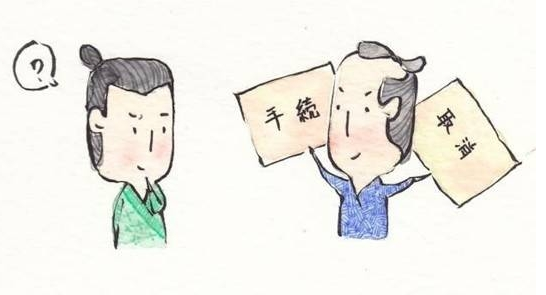(单词翻译:单击)
Hi at my University I have an option to take evening classes in either Japanese or Chinese. I was wondering in terms of what may be more beneficial to learn which one would you recommend to learn? I have a interest in both of them however I would like to focus on one for now.
嗨,我的大学可以选择日语或中文的晚上课程。 我想知道学习哪一门语言更有益 哪一个你会建议学习? 我对这两个都有兴趣,但是我现在想关注一个。
The main consideration for you I think is which language has greater potential to open up new educational professional or personal opportunities for you as an individual.
我觉得主要的考量是哪种语言在教育,职业或个人机会上能提供更大的机遇。
Some people might argue that greater economic opportunities lie in learning Chinese because of that society’s much larger domestic and international-diaspora populations. Although I don’t know how the maturing and growth-slowing of the Chinese economy could affect such opportunities it might still offer better prospects than Japan’s.
有些人可能认为更大的经济机会在于学习中文,因为中国国内人口以及海外华人人口更多。 虽然我不知道中国经济如何成熟和增长放缓可能会影响到这样的机会,但它可能比日本还有更好的前景。

As for cultural or educational opportunities you’d have to decide which society might interest you more. I didn’t know much about Japan before I first went there but slowly immersed myself in several different aspects of the country’s traditional culture and ended up learning a great deal as well as having a fantastic time doing it.
至于文化或教育机会,你必须决定:哪个你可能会更感兴趣。 在我第一次去那里之前,我不太了解日本,但我慢慢沉浸在这个国家传统文化的几个不同方面,最终学到了很多东西,并且度过了一个梦幻般的时光。(外国不好中国好(雾))
If learning one language or the other is simply a matter of personal enjoyment and fulfillment I don’t think that there is a “superior” choice although you might find that one has a greater number of similar characteristics to your mother tongue and therefore could be somewhat easier for you to pick up e.g. basic Chinese grammar consists of subject-verb-obxt word order similar to many European languages whereas Japanese word order even for basic statements is essentially reversed.
如果学这个那个语言只是为了个人爱好和满足,我感觉没有什么“更好的”选择,虽然你可能发现其中一种与你的母语有相似点,那么你能比较容易学会,例如基本的中文语法是主语-谓语-宾语的语序,与很多欧洲语言相似,而日语的语序即使是简单的陈述句也是反过来的。
Other respondents here have mentioned the ideographic writing systems of both languages (kanji in Japanese hanzi in Chinese but both the same in essence … be aware that different styles of the ideographs exist in Japanese usage “mainland” Chinese usage and Chinese usage of Hong Kong or Taiwan). Committing to learning the ideographs for either language is essential for long-term progress towards real mastery. The syllabaries found in Japanese (hiragana and katakana) must be learned as well but they cannot be relied upon solely to communicate at a level beyond beginner-to-intermediate.
其他答主提到了两种语言中的表意文字(日语中的汉字和中文中的汉字,但是它们本质上是一回事……注意在日本、大陆中文和港台中文存在不同的表意字形态)。投入学习两种语言的表意文字是非常重要的,如果你想朝向精通迈步时还能有长期进步。日文的字母表(平假名和片假名)也必须学,但要想突破初级和中级水平,不能完全靠它们来交流。
Whatever you decide have fun with it! And learning any language helps you prepare your brain to learn others more readily so your time won’t be wasted either way if you put a solid effort into your study.
无论你做出什么决定,享受它吧!学习任何一门语言都能帮助你的大脑做好学习另一门语言的准备,所以两种选择你的时间都不会浪费的,如果你努力学习的话。
I’m leaning towards the opinion that Japanese is a lot more approachable than Chinese.
我倾向于日语比汉语更易于理解的观点。
You can learn Hiragana in the space of a day and instantly have stuff to read which is just something that doesn’t exist in Chinese. Japanese has a very minimal and easy to pronounce phonetic repertoire if you can do a Spanish ‘r’. then you already know all you need. You don’t have to worry about mispronouncing tones (people have different opinions on how difficult this is and native Chinese speakers have even told me it’s not that important as long as they can understand you from context but it’s still a thing). The first 1000 or so Kanji represent 90% of everyday newspaper articles written communication etc which still a lot but a heck of a lot more forgiving than Chinese.
一天时间你就可以学会平假名,并且立马可以阅读一些材料,在这一点上汉语是不行的。日语的语音库很小,而且音也容易发。如果你能用西班牙语发出“r”这个音,那么你就已经知道你所需要的一切。你不用担心发错音(人们对发音的困难程度是有不同意见的,母语为汉语的人甚至告诉我,发音不是那么重要,因为他们可以通过上下文来理解你的意思,不过这确实是个问题)。最常用的1000多个日本汉字就能表述90%的每日的报纸、文章、书写和通信等等,虽然仍然很多,不过比汉语少太多。


